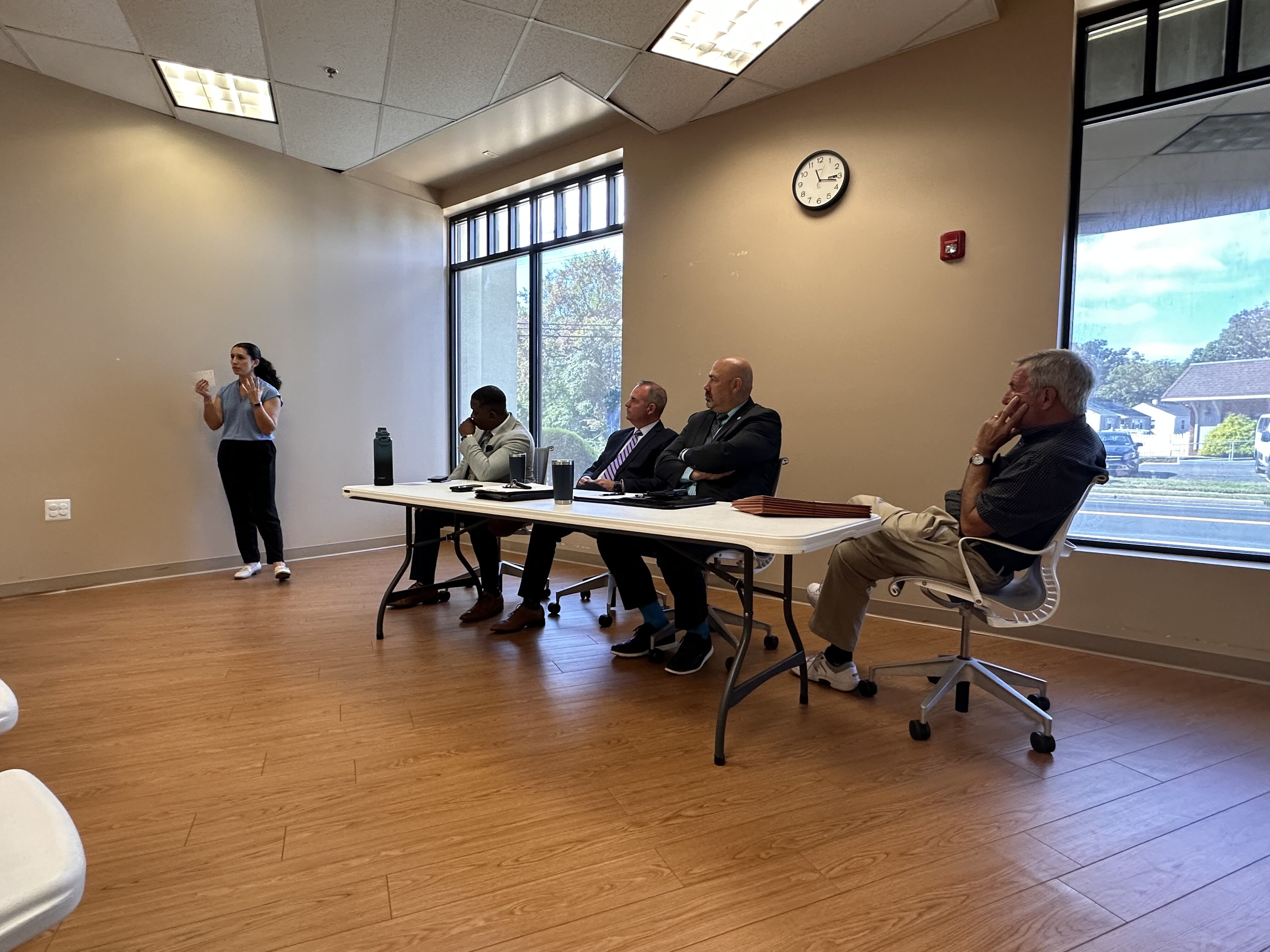Fall 2024 Newsletter
Topics in the Fall Newsletter
Legislative Ties Strengthen NJ 211’s Impact
In July, NJ 211 welcomed Assemblywoman Aura Dunn of District 25 and her interns for an in-depth look at how our organization supports residents across the state. During their time with us, Dunn’s team explored NJ 211’s core services, observed how our community resource specialists provide live assistance, and learned how to use our website to search the human services directory and interpret the public data dashboard. This engagement marks the beginning of a broader effort to deepen our collaboration with legislative partners in enhancing NJ 211 services throughout New Jersey. Our government partners have long been steadfast advocates for NJ 211 and the vital resources we provide. To further elevate the experience for residents, NJ 211 remains committed to ongoing collaboration with members of the legislature, aiming to expand our reach and impact within every community.
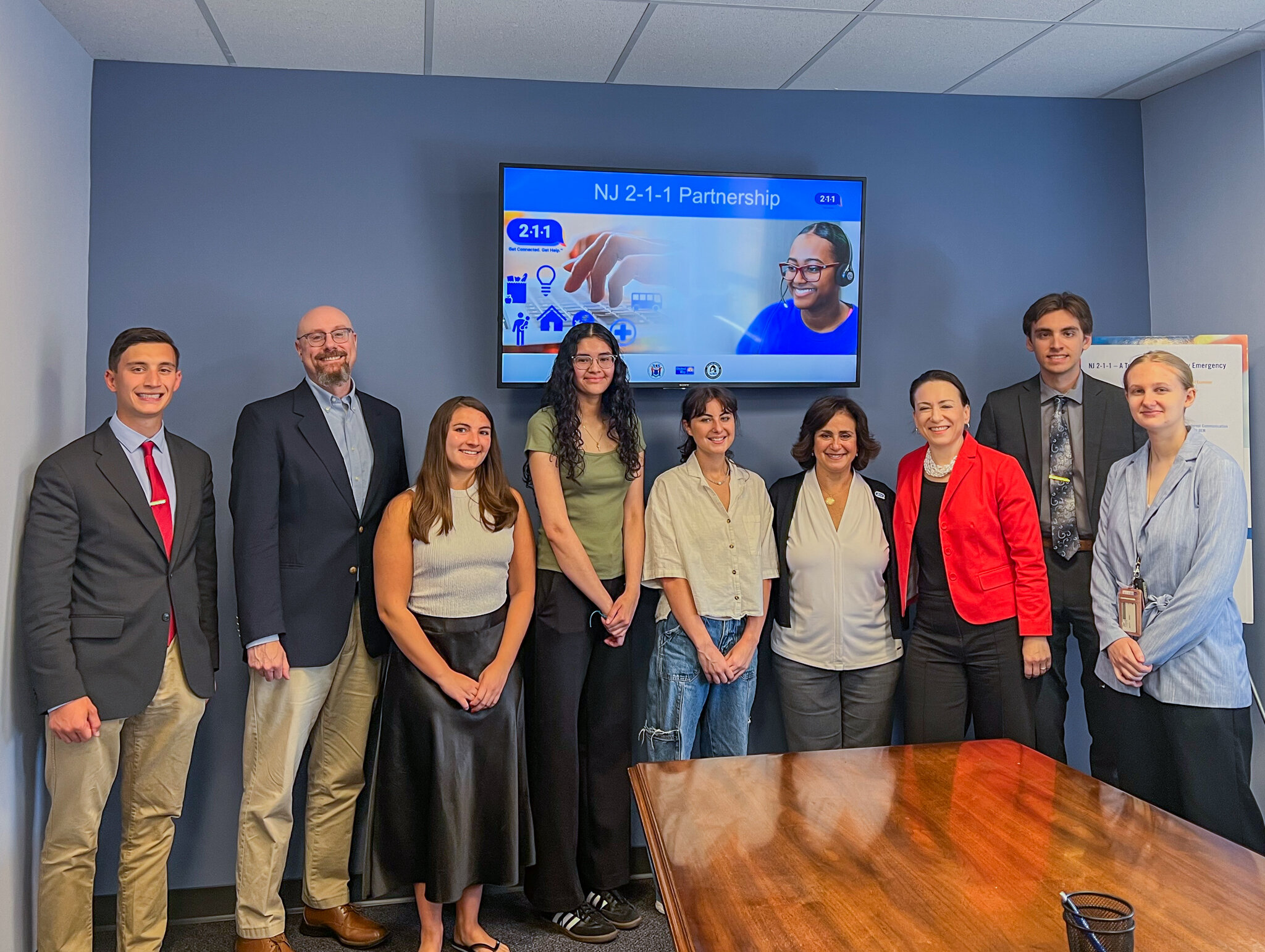
While our services are well-known among government and nonprofit partners, we continue to work towards making NJ 211 a household name—easily accessible and recognizable to all. Through dedicated marketing efforts and active participation in community gatherings, we are steadily achieving this goal.
We are committed to informing all legislators—Democrats and Republicans alike—because our mission is about helping all people, regardless of political affiliation. NJ 211 is dedicated to ensuring that New Jersey residents are aware of the resources available to them. To achieve this, we are focusing on building stronger connections with legislators and their staff through a series of webinars and exhibits at the Statehouse this fall. These initiatives will equip legislators with the tools and knowledge they need to better serve their constituents and make a meaningful impact in their communities.
“Our time with Assemblywoman Dunn and her interns was an invaluable opportunity to educate a new generation about the vital services NJ 211 provides,” said Kevin Donahue, Chief Operating Officer of NJ 211. “Many of the interns were unfamiliar with our service, and one even mentioned being thankful for learning about 211 because they have a friend who could benefit from our organization’s connections. Now, they feel equipped to guide their friend and others to call 211 for information and resources.”
This year, thanks to a legislative award sponsored by Senator Gordon Johnson and Assemblyman Bernie Wimberly, we continue to expand our services. One major advancement is the release of Version 2 of our Public Data Dashboard. Now easily accessible through our website, this version of the data dashboard offers a deeper level of detail that is invaluable to government entities, nonprofits, and academic researchers. These stakeholders can now analyze and advocate more effectively using the granular information provided about community needs, the demographics of those seeking assistance, and the referrals made. This development underscores the importance of our partnerships with legislators in driving meaningful improvements and expanding the accessibility of critical data.
Our recent visit with Assemblywoman Dunn is just one of several opportunities we’ve had to engage with legislative officials. In September, NJ 211 participated in a virtual Lunch and Learn with Assembly District Office staff and took part in a 211 Overview and Training webinar organized by Senate President Nicholas Scutari’s office. Each event offered valuable insights into how 211 can be utilized to address the needs of their constituents, including an overview of our services and public dashboard. These virtual and in-person engagements are vital to advancing our mission to assist New Jerseyans in need.
“I have been working with constituents for the last 10 years, and it’s finally nice to have all the tools in one place,” said Toni Ann Azzolini, Legislative Aide at the Office of Senator Paul A. Sarlo. “People have different needs, and I can address them using one resource through NJ 211.”
We encourage all legislative members and offices to follow their lead by visiting NJ 211, touring our contact center, and learning how to leverage our services to better support their constituents. Strengthening the ties between NJ 211 and legislators, along with our improved public dashboard, fosters a shared commitment to serving the community. Together, these collaborations enhance our collective efforts to make a meaningful difference in the lives of New Jersey residents. We invite you to join us and see firsthand how NJ 211 is making an impact.
We extend our gratitude to our legislative partners for taking the time to highlight the importance of our services to their teams and hope to welcome more organizations to experience our work firsthand in the future.
Gearing up for 2025 Utility Assistance
Did you know that one of NJ 211’s top requests is utility assistance? NJ 211 aims to aid callers with their accumulating heating and medically necessary cooling bills every year by educating and screening people for programs such as the Low-Income Home Energy Assistance Program (LIHEAP) and Universal Service Fund (USF). In 2023, NJ 211 assisted over 65,000 residents with new LIHEAP applications and reviewed the status of over 50,000 applications.
Our skilled community resource specialists educate and screen callers for utility assistance programs, such as LIHEAP and USF. They provide referrals to agencies that offer in-person application assistance or guide callers to the online portal. Additionally, they can check application statuses and help identify any delays or missing documents.

Access to utility assistance is a critical aspect of addressing social determinants of health. Keeping homes warm during the winter and ensuring that lights stay on are essential for the well-being of individuals and families. Reliable utility services contribute to a safe and stable living environment, which is foundational for good health. Starting October 1, low-income families and individuals who meet the annual eligibility requirements can apply for LIHEAP and USF assistance. We remain committed to being a trusted point of contact when addressing needs such as utility assistance to ensure New Jerseyans have a place to call when they are unsure where to begin.
To learn more visit our Utility Assistance Programs page.
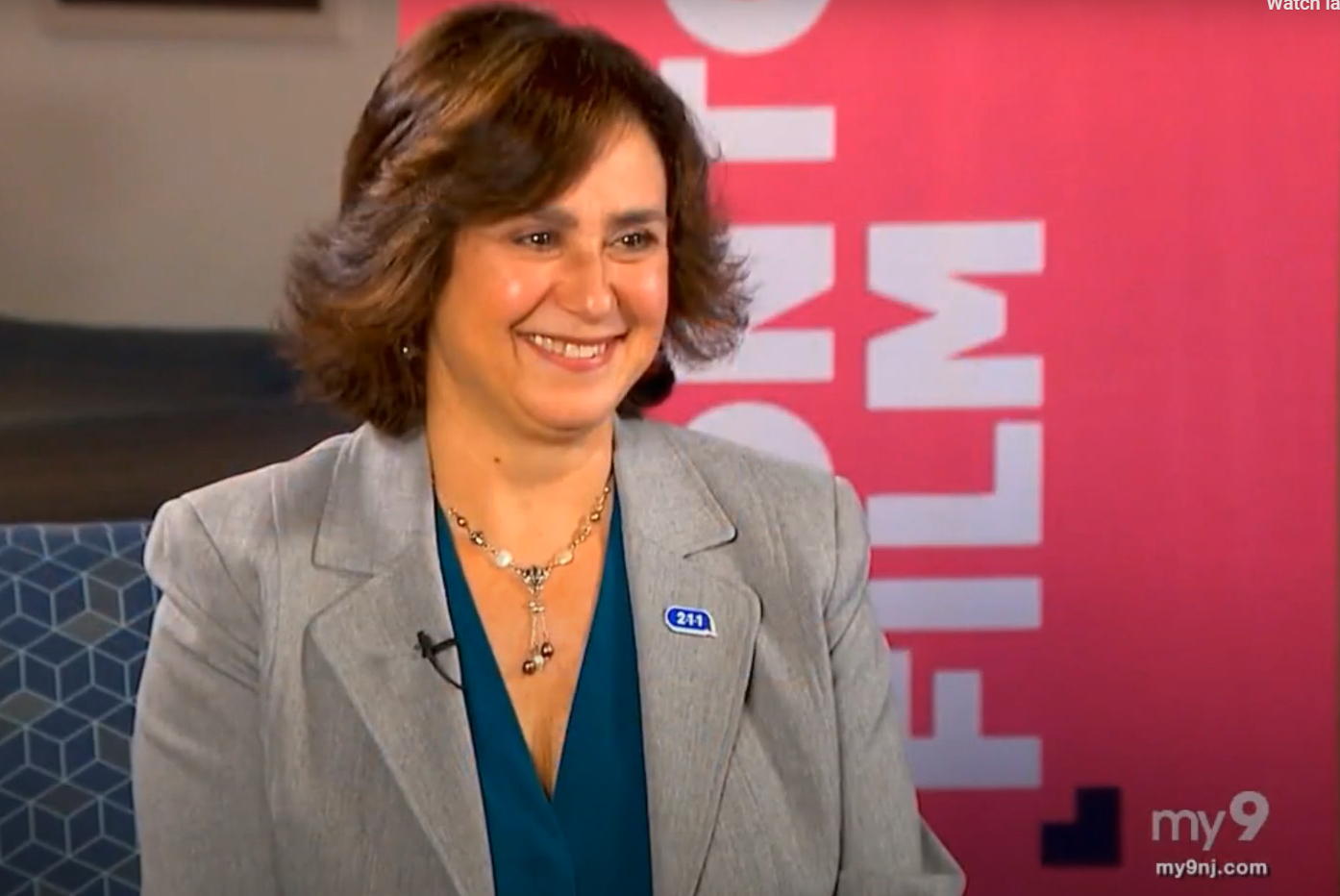
Spotlight on NJ 211’s Growing Recognition Through Media Outreach
Since the launch of our marketing campaign in March, we have seen a notable increase in the recognition of NJ 211 across social platforms and news outlets throughout New Jersey. In our Summer newsletter, we shared an interview our Chief Executive Officer Melissa Acree did with New Jersey 101.5. As we move forward with our outreach efforts, we have also connected with other broadcasting and media outlets like My9NJ to do an interview for “New Jersey Now!” in early July. In her conversation with Mark Bonamo, Acree provided the key facts and goals of NJ 211, as well as what the future might have in store for the nonprofit.
“I think first and foremost, it provides hope. Someone that they [consumers] can actually talk to,” Acree says when asked how the marketing campaign can be an asset to those in need. “Making that first step to reach out is hard. I think that it can provide hope and help - it can reassure them that they did the right thing. It empowers them because what we give them, they take the next step to going to that location, calling them, filling out that application. Empowering people and giving them that positive sometimes is an important boost.”
As our marketing campaign continues to expand through traditional and digital media, NJ 211 will proceed with our vision to make the critical connection between individuals and families seeking health and human services and the community referrals best able to meet their needs.
Help us spread the word about 211! Check out our media toolkit to view posters, flyers, social media assets, and videos provided by NJ 211.
Did you miss our New Jersey Now! feature? Check out our interview today!
Supporting Code Red Legislation
The extreme weather conditions brought about throughout the year can be hazardous and even deadly for vulnerable groups such as those who are, or are at risk of, homelessness. In 2017, the state of New Jersey enacted an official bill for the Code Blue Program, requiring county emergency management coordinators to help at-risk individuals (people living outdoors, uninhabitable buildings, or in places not legally occupied) during severe weather events declared by the National Weather Service (NWS). Code Blue focuses on locating and providing warming shelters for these individuals in events in extreme cold temperatures under 40 degrees Fahrenheit, or storms like a snow emergency. Seeing the impact this program has on NJ residents during the harsh winter nights, groups such as NJ 211 are pushing to support a likemind idea to help these individuals in the extreme heat: a Code Red Program.
On June 20th, Chief Executive Officer Melissa Acree and Program Director Jaclyn Nunziato testified at the Senate Health and Human Services Committee meeting in support of Code Red legislation. Like Code Blue, Code Red would require county emergency management coordinators to assist individuals when the NWS declares a heat advisory for a specific region or reports an Air Quality Index of 151 or higher. As we have seen this past summer, rising temperatures continue to last for longer periods of time, leaving people susceptible to heat exhaustion and heat stroke. By creating a procedure to make cooling centers more available on a statewide level, vulnerable populations in New Jersey can feel assured that help is available when Mother Nature strikes hardest.
Melissa Acree stated, “Testifying for programs like the Code Red legislation is crucial because it directly supports the well-being of our most vulnerable residents. At NJ 211, we have firsthand experience with Code Blue programs, and we’ve seen the significant positive impact they have on individuals who reach out for help. By advocating for Code Red, we aim to extend this vital support to address extreme heat and poor air quality, ensuring that every New Jersey resident has access to the resources they need during critical times. Our involvement in these legislative efforts is driven by our commitment to making a tangible difference in the lives of those who depend on our services.”
The New Jersey legislature has proposed a three-year pilot program to test Code Red alerts and assess its effectiveness for the public and said organizations operating the cooling centers. As an organization committed to connecting our communities to help, NJ 211 continues to advocate for this initiative and be of assistance to those in need.
NJ 211 in the Community
Our team continues to attend various gatherings and meetings across the state to connect with residents in their community. We are always looking for new events to attend - interested in having NJ 211 at your next community gathering? Email information to communications@nj211.org.
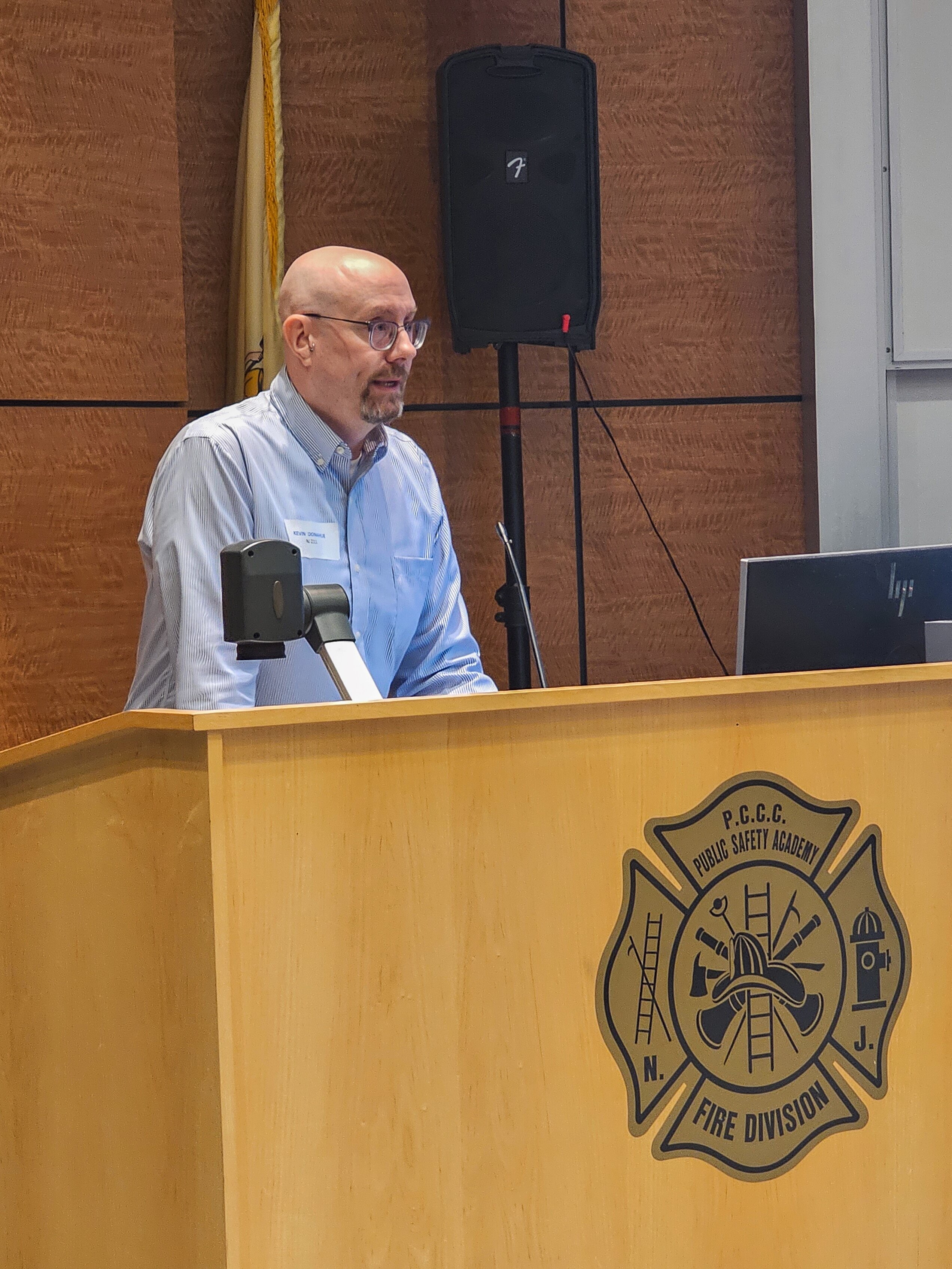
Passaic Department of Human Services Provider Summit
On August 8th, Kevin Donahue, NJ 211 Chief Operating Officer, and Marco Zelaya, Homeless Program Manager, attended the Passaic County Department of Human Services' 2nd Annual Provider Summit. They engaged with local providers to discuss best practices for serving the Passaic community. Panels and breakout sessions covered topics including social justice, access to funding, Medicaid accessibility, trauma-informed care, youth services, and harm reduction techniques.
In addition to representing NJ 211, Kevin is an active participant in the Impact Passaic Council, a multi-sector, collaborative effort that aims to create scalable and sustainable programs to improve private and public service systems for individuals and families in Passaic County. Kevin’s collaborative efforts with the additional members of this council allows our organization to also gain a better understanding of what this community truly needs and improve our work for residents who rely on us.
Get Ready Fest in Camden
NJ 211 recently exhibited at the Get Ready Fest in August, marking our second time participating in this event in partnership with the Malcolm Jenkins Foundation. Our dedicated database resource specialists were on hand to connect with residents and provide valuable assistance. Engaging with the community in their own neighborhoods allows us to break down barriers and offer a platform for residents to ask questions, learn about available services, and understand how to reach out to us for additional needs. We look forward to another successful event and continuing our commitment to serving the Camden area.
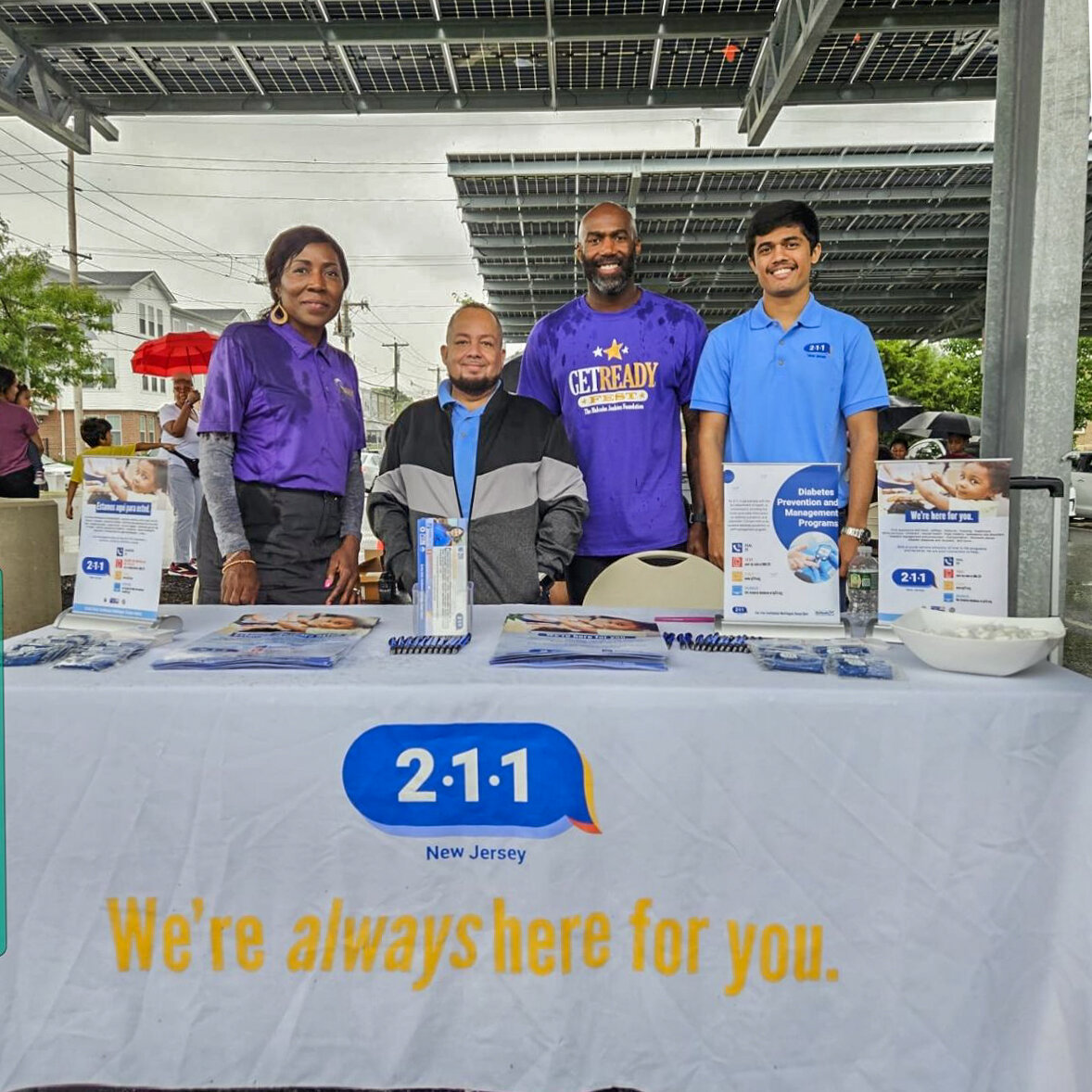
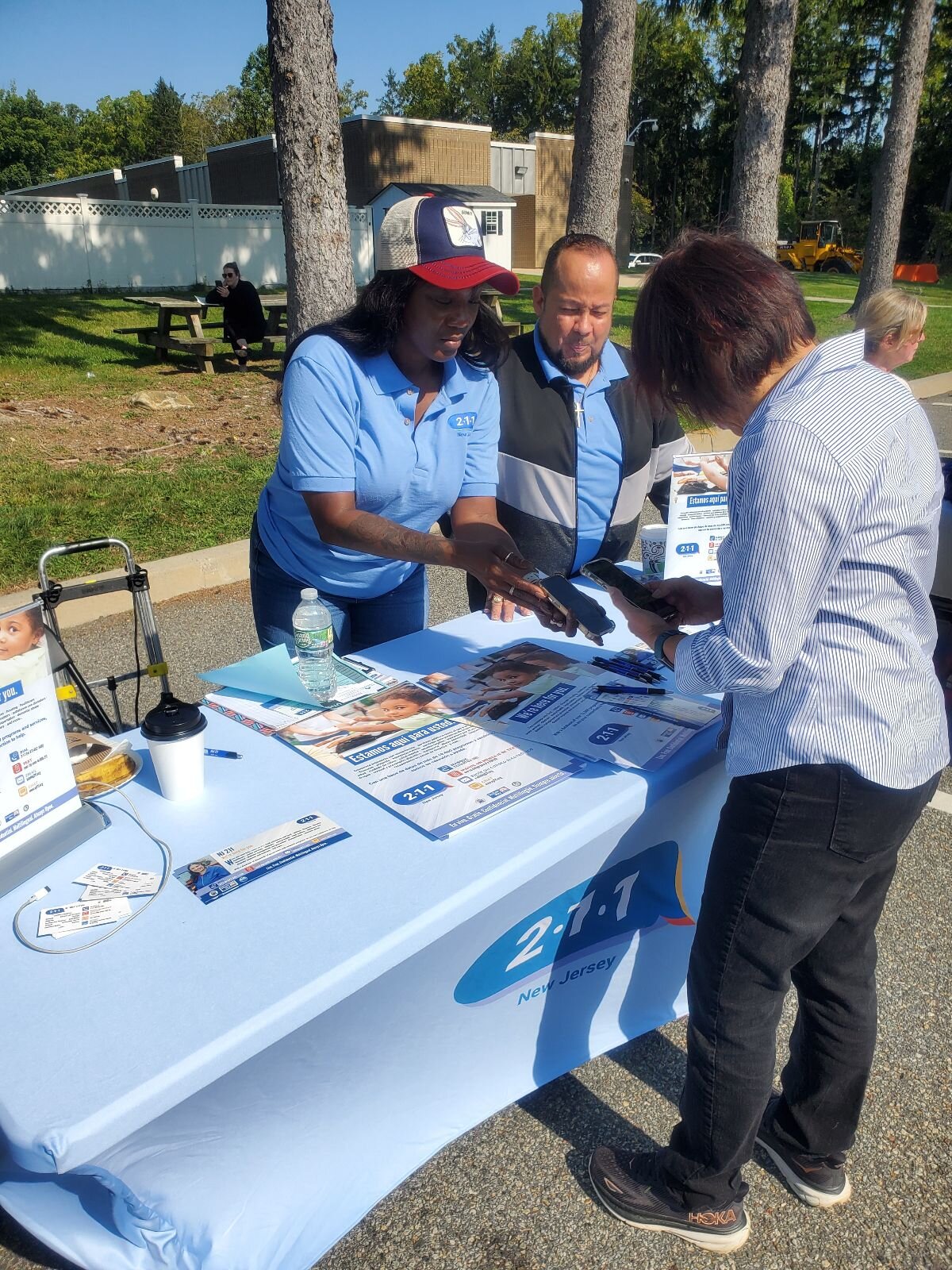
Morris County Community Resource Exchange
On September 13, NJ 211 participated in the third annual Morris County Community Resource Exchange. Alongside various local officials and nonprofit agencies, NJ 211 played an active role in exchanging information and resources with visitors and other organizations to help combat high areas of need. While conversing with the community, our team members also connected with the other agencies present to encourage them to join our human services directory and keep their information up to date. By being present in the community, we are able to communicate the importance of joining our growing initiative of effectively supporting New Jersey residents when they contact us for help, including why having accurate information posted helps both the residents and the organization looking to provide assistance. Each and every day, our team works tirelessly to supply the best care, both on the call and behind the scenes. It is with the help of our partners that we can strive to give all New Jerseyans the tools they need to live a healthy, safe, and fulfilling life.
Greater Asbury Park Community Development Initiative Meeting
As NJ 211’s goals grow to expand our reach and impact, so does our pursuit to connect with more areas of the state to ensure our valuable resources find their way to those who may be seeking assistance, but are not sure where to start. In addition to attending community events, our team looks to present the key information about our organization in areas unfamiliar to the vast information available with a simple dial or search. Members of our communications team host virtual informational sessions or attend in-person meetings such as the Greater Asbury Park Community Development Initiative (GAPCDI) to talk to attendees about who we are, what we do, and ways to reach us. At September’s GAPCDI, we highlighted areas of importance to our organization and touched upon how information in our human services directory can help the initiative’s mission, to prevent juvenile crime and promote positive outcomes for youth in Asbury Park, as well.
